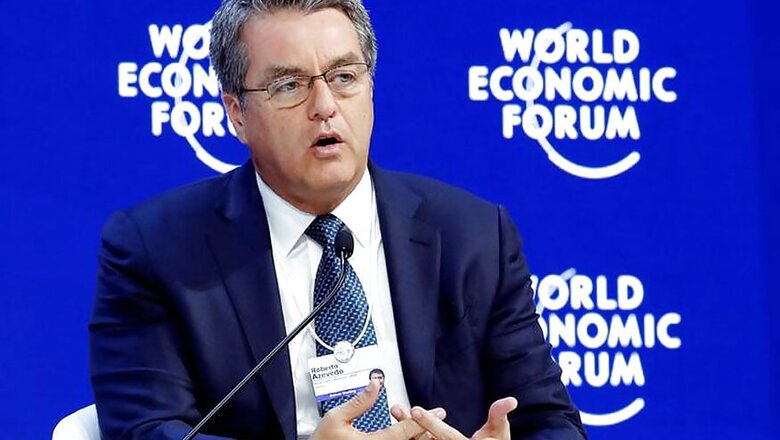
views
Geneva: The World Trade Organization chief warned states on Saturday that creating barriers to international trade would "jeopardise the global economy," after Washington slapped steep tariffs on Chinese imports, heightening fears of a trade war.
"Disrupting trade flows will jeopardise the global economy at a time when economic recovery, though fragile, has been increasingly evident around the world," WTO Director-General Roberto Azevedo said in a statement, calling for "restraint and urgent dialogue".
US President Donald Trump on Thursday hit China with tariffs on up to USD 60 billion (48.5 billion euros) of imports to retaliate against the "theft" of American intellectual property, fuelling fears of a trade war between the world's two largest economies.
Washington also launched on Saturday a challenge before the WTO's Dispute Settlement Body (DSB) against China over intellectual property breaches. China meanwhile warned the United States that it was "not afraid of a trade war" as it threatened tariffs on USD 3 billion worth of US goods in retaliation over the US measures.
In his statement, Azevedo said that during a meeting of WTO's Council of Trade in Goods, member states had discussed "a number of the specific tensions that have arisen between different members in recent weeks."
"I encourage members to continue working through the WTO's many forums and mechanisms to deal with their concerns and explore potential solutions," he said, without naming any specific countries. "Actions taken outside these collective processes greatly increase the risk of escalation in a confrontation that will have no winners, and which could quickly lead to a less stable trading system," he warned.
"I again call for restraint and urgent dialogue as the best path forward to resolve these problems." The WTO, which strives to foster a level-playing field in global trade, can through its DSB act as a court to resolve trade disputes. However, Trump's protectionist administration has levelled hostile rhetoric towards the WTO, and has nearly crippled its dispute resolution mechanism by blocking appointment of new judges.


















Comments
0 comment